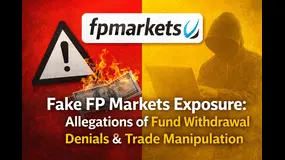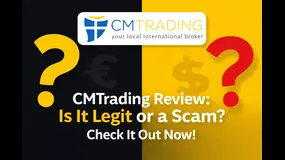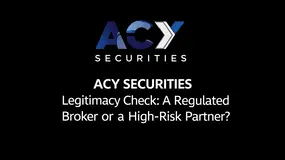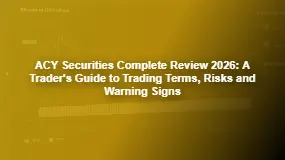Abstract:In recent years, a new breed of retailer-focused trading firms has emerged: proprietary (prop) trading outfits that recruit individual traders to trade the firm’s capital under structured rules. Boasting low entry costs, clear risk parameters, and profit-sharing incentives, these prop firms are rapidly winning over retail traders, many of whom previously traded Contracts for Difference (CFDs) with established online brokers. As prop trading revenues accelerate, a key question arises: Are CFD brokers losing business to prop firms?
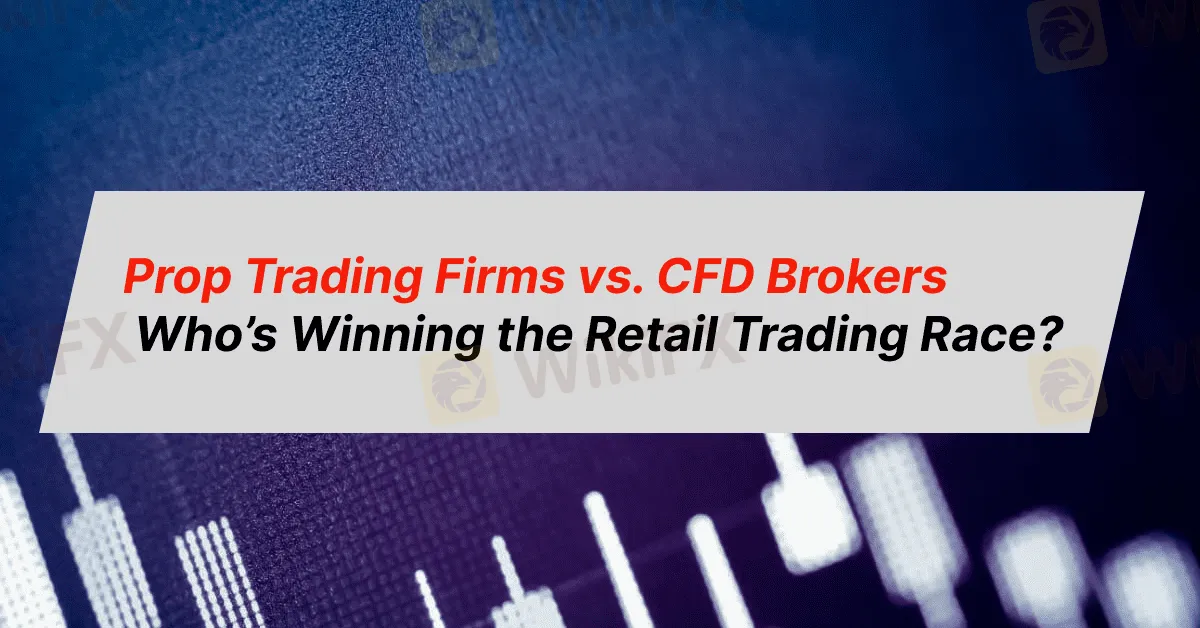
Introduction
In recent years, a new breed of retailer-focused trading firms has emerged: proprietary (prop) trading outfits that recruit individual traders to trade the firms capital under structured rules. Boasting low entry costs, clear risk parameters, and profit-sharing incentives, these prop firms are rapidly winning over retail traders, many of whom previously traded Contracts for Difference (CFDs) with established online brokers. As prop trading revenues accelerate, a key question arises: Are CFD brokers losing business to prop firms?
The Prop Firm Advantage
- Access to Firm Capital
Traditional CFD trading requires traders to deposit and risk their capital. Prop firms flip the model: after passing a modest “evaluation challenge,” traders earn the right to trade the firms funds. This all-but-eliminates personal financial risk, making the proposition especially attractive to new and risk-averse traders.
- Structured Risk Controls
Prop firms enforce clear rules on drawdowns, maximum position sizes, and daily loss limits. Traders learn disciplined risk management by necessity: violate the rules, and the account is closed. This hands-on education in preservation of capital fills a void left by many CFD brokers, who tend to focus more on platform features and less on trader education.
- Performance-Based Payouts
Instead of earning based on turnover or volume as with CFD brokers, prop traders split actual trading profits—often 70% or more—directly with the firm. For skilled traders, this arrangement can outpace typical CFD commission or spread-based earnings.
The Evidence: Prop Firms Are Growing Fast
- Challenge Sales Up 30% Annually
Charles Finkelstein, CEO of Upside Funding, reports that his firms internal data shows a roughly 30% year-over-year rise in challenge purchases. This metric serves as a proxy for new traders entering the prop trading ecosystem, and a potential red flag for CFD brokers relying on self-funded clients.
- Anecdotal Broker Feedback
Industry whispers and forum chatter suggest slumping new-account openings at mid-tier CFD brokers. While exact figures remain proprietary, several smaller brokers have privately complained of thinner pipelines as would-be clients gravitate toward the “no-deposit” allure of prop challenges.
Why CFD Brokers Are Feeling the Heat
- Market Saturation
The CFD space is crowded. Dozens of brokers—from global giants to niche outfits—vie for the same finite pool of retail traders. Differentiation increasingly rests on speed of execution, range of instruments, or gimmicky account tiers.
- Escalating Marketing Costs
To stand out, brokers must spend heavily on online ads, sponsorships, and affiliate programs. Traders receive sign-up bonuses, cashback offers, and “VIP” perks—often at the expense of broker profitability. Smaller players struggle to match the budgets of industry heavyweights.
- Trader Education Gap
While many CFD brokers provide webinars and tutorial articles, few enforce the disciplined, rule-based approach that prop firms embed in their evaluation process. This gap leaves self-funded traders vulnerable to rapid losses and frustration, pushing them toward the more guided prop model.
The Future of CFD Brokers: Adapt or Fade
To reclaim market share and remain relevant, CFD brokers should consider:
- Launching Funded-Account Programs
Mirror the prop-firm model by offering “funded accounts” to traders who demonstrate consistent profitability in simulated or small-live environments.
- Embedding Structured Risk Courses
Build in mandatory, gamified risk-management modules that reward traders for following best practices, reinforcing good habits before they trade sizable positions.
- Expanding Social & Copy-Trading Features
Create community-driven platforms where successful traders strategies can be followed (or “copied”), capturing some of the social engagement that prop firms foster.
- Diversifying Product Suites
Offer unique asset classes—cryptocurrency futures, ESG-focused CFDs, micro-options—to stand out from commoditized offerings and capture niche trader segments.
Conclusion
The rapid rise of prop trading firms has injected fresh competition into the retail trading world, capitalizing on the twin promises of zero personal-fund risk and structured, rules-based progression. CFD brokers—once the go-to for leveraged retail speculation—now face an industry makeover. By embracing innovation in account structures, education, and community features, they can fight back, ensuring that self-funded CFD trading remains a vibrant and profitable option for retail market participants.

Disclaimer:
The views in this article only represent the author's personal views, and do not constitute investment advice on this platform. This platform does not guarantee the accuracy, completeness and timeliness of the information in the article, and will not be liable for any loss caused by the use of or reliance on the information in the article.




